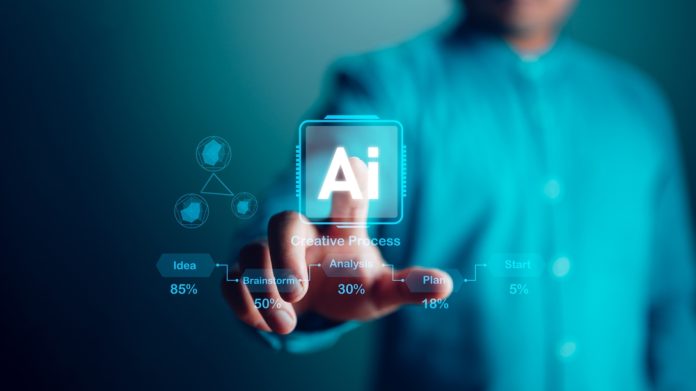
As organizations adapt to the constantly evolving global market, employee training and development have become increasingly important. Gaining new knowledge and improving existing skills are essential for employees to excel in their work and produce competitive outcomes.
In the past, companies conducted employee training in a classroom-style environment. As a result, all employees had to learn at the pace of the least experienced participant. Nowadays, many enterprises have embraced artificial intelligence (AI) as part of their employee training programs.
By customizing the training experience to meet each learner’s specific needs and preferences, AI-driven personalized learning plays a significant role in employee development. This article explains the benefits and challenges of personalized learning through AI.
What Is a Personalization of Learning Through AI?
Personalization of learning refers to adapting the educational process to each student’s unique requirements. Learners may tailor their experience in pace, technologies, content, quality, sequence, teaching style, and resource selection to best suit their requirements and objectives.
Human educators and trainers can’t create individualized lesson plans for each student on a large scale, but digital tools make this process much more efficient. As an example of digital technology, AI allows learners to access training opportunities quickly and conveniently; its technology aids in predicting learning outcomes, allowing the production of content customized to each learner’s past successes and new goals.
Using artificial intelligence allows each individual to have a personalized learning experience. It achieves that by analyzing the learner’s performance and adapting the content or curriculum that best suits their preferences and needs.
Advantages of Personalization of Learning
The effectiveness of the learning materials and, by extension, the efficiency of work increased via the provision of tailored learning are the main outcomes of the personalization of learning.
Enhance Outcomes and Involvement
Learning algorithms can predict outcomes and personalize information based on the goals and experience of the learner. Individuals taking personalized courses with skill gaps can receive tailored recommendations to address them in their learning experience.
This includes scenarios when the system permits learners to skip modules because they exhibited competency and proven not to require them. Similarly, it includes situations where learners lack basic abilities and are given a more linear learning path.
Create New Material
With AI, producing new, relevant, and engaging materials that match learners’ needs is simple. Additionally, it doesn’t require the traditional investment of time, money, and other resources. It will also relieve a significant amount of pressure off the shoulders of instructional designers.
Identify Knowledge Gaps
Most corporate training is based on conventional education, where all employees are expected to use the same materials. However, this approach can be problematic as it treats all employees equally despite having different experiences, viewpoints, and skills.
Artificial intelligence can rapidly and accurately identify weaknesses in team members. It can efficiently extract insights from vast amounts of data through predictive analysis and machine learning. Additionally, AI can compile learner profiles from multiple sources in minutes, a task that could take human counterparts several days to accomplish.
With the ability to assess individuals’ skills, knowledge, and performance, AI can bridge gaps in knowledge. It customizes training approaches, resulting in more effective training and saving employees valuable time.
Personalize Learning According to the Learner
By tailoring courses to suit learners’ abilities, interests, and aspirations, personalized education can help employees improve at their own pace. Moreover, customized learning can maintain learners’ interest by catering to their unique needs and preferences.
People have different preferences for how they learn best. For example, visual materials like videos may be more effective for some people than texts. Therefore, by offering multiple modes of instruction, learners can choose the best method for them and optimize their learning experience.
Challenges of Personalization of Learning Through AI
Even though AI-based individualized learning provides several significant advantages, there are still concerns about it, such as:
Exploiting Data Privacy
Using AI for personalized learning requires collecting and analyzing large amounts of individual learners’ data. Employers must ensure this data is collected and stored securely and complies with adopted cybersecurity measurements.
Accidentally Promoting Bias
The possibility for bias in AI-based tailored learning is another major obstacle. Employers must ensure their AI-driven learning systems are fair and unbiased to avoid promoting inequalities. Otherwise, these learning systems might promote discrimination by suggesting a specific professional route to people based on gender or race.
System Integration Issues
Implementing AI personalized learning systems might require integrating them with a company’s current HR and learning software. That raises a compatibility issue, especially since some companies might not have systems developed enough to integrate with AI personalized learning solutions.
Employee Rejection
Some employees may resist AI-based personalized learning, and they might perceive it as invasive or intrusive. Employers must ensure the adopted systems are designed to respect employees’ privacy and autonomy and communicate with their teams about the importance of these solutions.
High Implementation Cost
Implementing AI-driven personalized learning systems can be expensive, and SMEs may not have the resources to invest in such systems. Even larger businesses may struggle with the cost of developing and maintaining personalized learning programs over time.
Conclusion
- AI is a great example of digital technology that allows AI-based personalized learning and develops exclusive content, learning programs, and materials for each learner.
- AI-tailored learning boosts employee abilities and business success.
- AI finds and communicates knowledge gaps, personalizes learning to learners’ goals and personalities, and makes relevant recommendations based on precise assessments.
- Learners’ privacy concerns make AI-based tailored learning difficult.
Artificial intelligence has the potential to improve and revolutionize the educational system significantly. Numerous businesses have already begun investing in, implementing, and profiting from AI. It’s ideal for tailoring instruction to each individual’s needs and accelerating learning to boost productivity and ROI.




